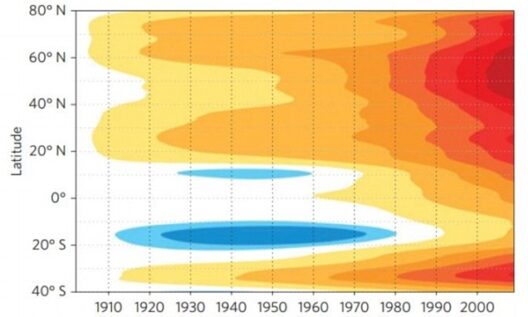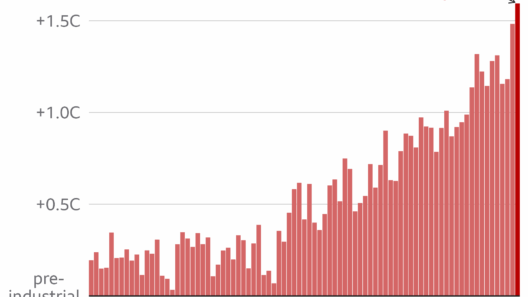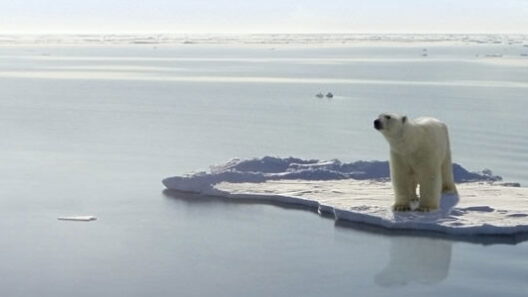The concept of climate change has morphed from a niche topic in scientific circles into a powerful narrative that permeates the global economy. This transformation has inspired unrivaled fascination, particularly within the realms of politics and commerce. The question that arises is quite peculiar: how much of an industry has global warming become? Indeed, the very notion that climate may be treated as a commodity raises eyebrows, but it is essential to examine the multifaceted dimensions of this burgeoning sphere.
At its core, global warming elicits a multitude of reactions. Polls reveal that a significant portion of the public expresses concern, yet there exists a striking dichotomy in how these sentiments translate to actionable change. Numerous corporations, perturbed by potential repercussions, have adopted greenwashing tactics—public relations maneuvers that portray a façade of sustainability while capitalizing on their traditional profit models. This complex choreography of ecological virtue signaling and actual environmental stewardship beckons closer inspection.
One of the most striking elements of the climate discourse is the economic valuation of carbon emissions through carbon trading markets. Capitalists have grasped the ability to monetize pollution, engendering a new approach where emissions become tradable commodities. The European Union Emissions Trading Scheme (EU ETS), for instance, represents one of the largest carbon markets globally, spanning countless industries. Here, corporations that exceed their emission allowances can buy credits from those who fall below their limits. Such mechanisms, while innovative, often elicit criticism. They suggest that financial transactions can absolve firms from meaningful change and manipulation of carbon markets can lead to the prioritization of profit over real progress in addressing global warming.
The rapid rise of renewable energy sources further illustrates the economy’s pivot in response to climate phenomena. Solar and wind energies have witnessed exponential growth in both investment and technological advancement. Investors are increasingly attracted to these green technologies, viewing them not just as ethical choices but as lucrative opportunities for high returns. The International Renewable Energy Agency projects that transitioning to renewable energies could yield up to 24 million new jobs globally by 2030. This shift instigates a fascinating dynamic: traditional fossil fuel companies are forced to reassess their long-term strategies amidst growing public awareness and regulatory pressures. The burgeoned interest in green technologies invites a paradigm shift that could upset established economic hierarchies.
Moreover, the burgeoning market of climate-adaptive infrastructure epitomizes this phenomenon. Urban areas are beleaguered by extreme weather events—hurricanes, wildfires, and flooding—and such adversities necessitate substantial investments in resilient infrastructure. Cities are being coerced into adopting innovative building practices, flood barriers, and disaster response systems. The McKinsey Global Institute estimates that the demand for climate-resilient infrastructure could reach $3.7 trillion by 2030. These staggering figures unveil the interconnectedness of climate change with economic foresight and planning.
Not to be overlooked, the influence of behavioral economics on climate change discourse unveils a perplexing interplay between human decisions and environmental impact. The allure of consumerism often clouds judgments about sustainable practices. Market analysts note that the demand for “green” products typically spikes during crises, suggesting an opportunistic rather than innate commitment. This results in a strange economy—one where environmental degradation and consumer indulgence coexist, exemplifying the paradox of modern capitalism.
Amid the complexities of monetization and market adaptation, the role of government regulation emerges as a crucial element in addressing climate change. Policy frameworks such as carbon taxes and cap-and-trade systems directly confront corporations with tangible economic implications tied to their environmental records. These mechanisms compel businesses to acknowledge their environmental impact while providing a fiscal incentive for innovation. However, the efficacy of such policies hinges on collective political will—a tradition historically fraught in the face of corporate lobbying and vested interests.
An additional layer is added by the emergence of activist movements that seek to challenge the status quo. The advocacy efforts of organizations concerned about climate justice amplify the call for systemic changes rather than piecemeal solutions. They argue that simply sustaining economic growth under current models is inadequate. Their fervor emphasizes a radical transformation toward a sustainable economy, urging the public to rethink values associated with consumption and ownership.
However, this idealism often collides with pragmatic realities. Businesses argue that drastic reforms are detrimental to economic stability and global competitiveness. They claim that, without a robust framework that balances environmental concerns with economic interests, both progress and relation suffer. The ensuing dialogue opens avenues for potential conflict, underscoring the fraught relationship between commerce and conservation.
Another intriguing dimension of this discussion is the phenomenon of green finance. Ethical banking and investment vehicles increasingly favor projects committed to sustainability. Notably, bonds labeled as “green” are gaining traction, channeling funds into environmentally beneficial projects. This market introspection suggests an evolving narrative where finance itself is seduced by sustainability’s profitability. However, this is not without critique; stakeholders constantly scrutinize whether genuinely impactful projects receive adequate support or whether popular branding merely perpetuates “business as usual.”
In conclusion, the intertwinement of climate change and commerce unveils a captivating narrative of contradictions, challenges, and surprising opportunities. From carbon trading mechanisms to renewable energy innovation, the climate has undoubtedly become a significant component of global commerce. However, the ethical dilemmas posed by commodifying nature call for deep contemplation and collective action. As society grapples with the intricacies of climate economics, it must remain vigilant against superficial solutions that fail to address the monumental challenge that global warming imposes. The future of our planet may indeed hinge on how we navigate this complex and ever-evolving landscape.







